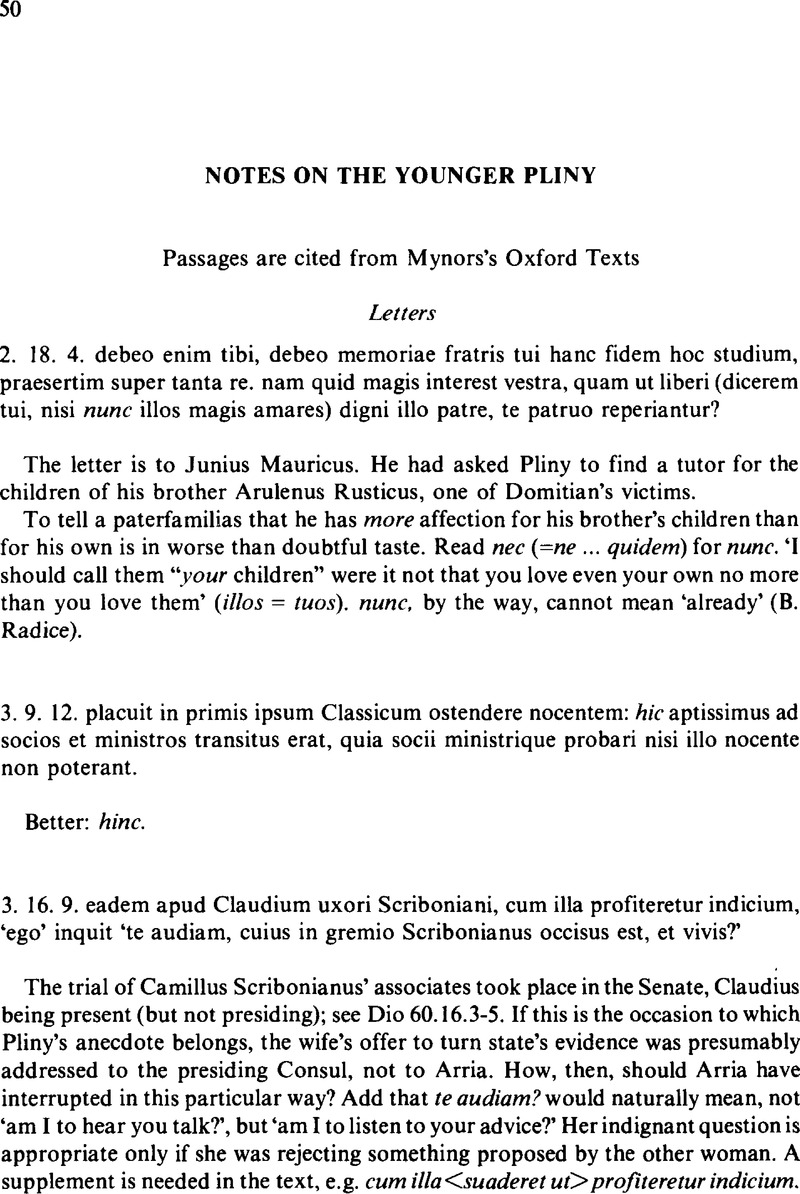No CrossRef data available.
Article contents
Notes on the Younger Pliny
Published online by Cambridge University Press: 28 February 2013
Abstract

- Type
- Other
- Information
- Copyright
- Copyright © The Author(s). Published online by Cambridge University Press 1981
References
NOTES
1. Professor Kenney writes: ‘On 9.8 I agree with the implication that the text is probably sound. However, are the two reasons quite as distinct as you suggest? Both are aspects of the same profound truth, that men do not judge impartially when personal feelings are engaged. Certainly as P. has expressed himself the optime … optima formulation imperfectly disguises the lack of strict logic – the sort of thing into which preoccupation with sound and effect rather than sense is apt to lure the second-rate writer’.
2. Dr Håkanson observes that Fraenkel's Thessalis udis (because it is raining!) looks almost like a joke. It has been remarked that anyone who knows enough Latin and wishes to appreciate the difference between a great critic and a great scholar who was not a great critic cannot do better than compare Housman's Lucan with Fraenkel's review; cf. Cambridge Review 94 (1973) 190Google Scholar.


